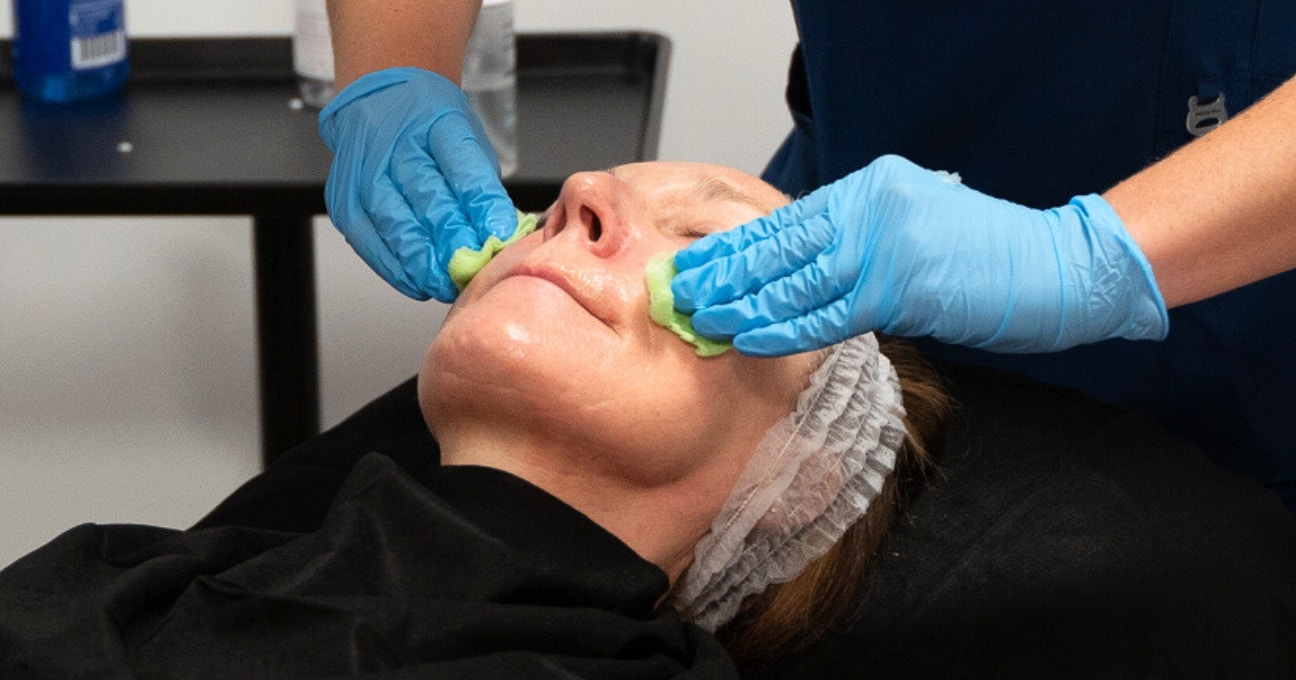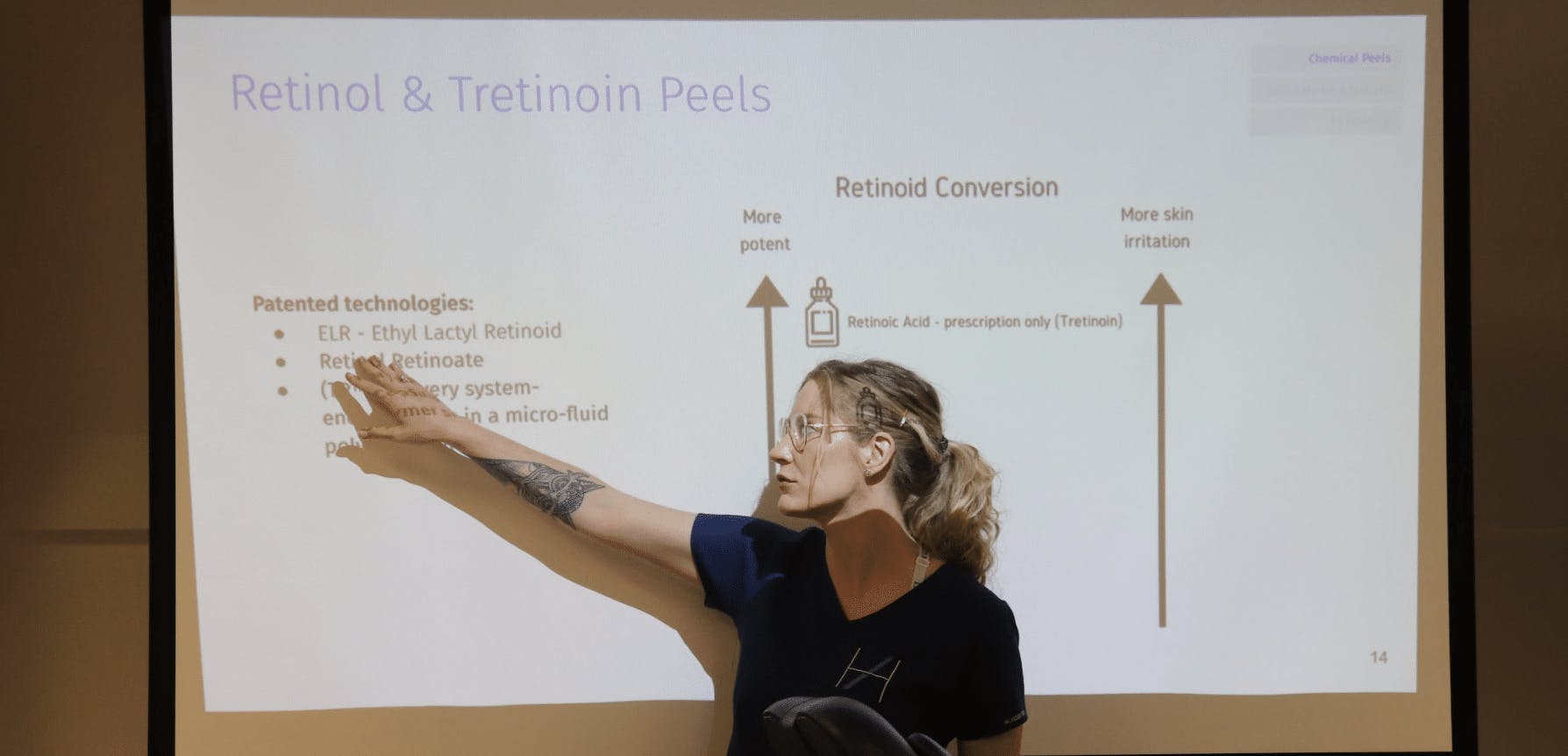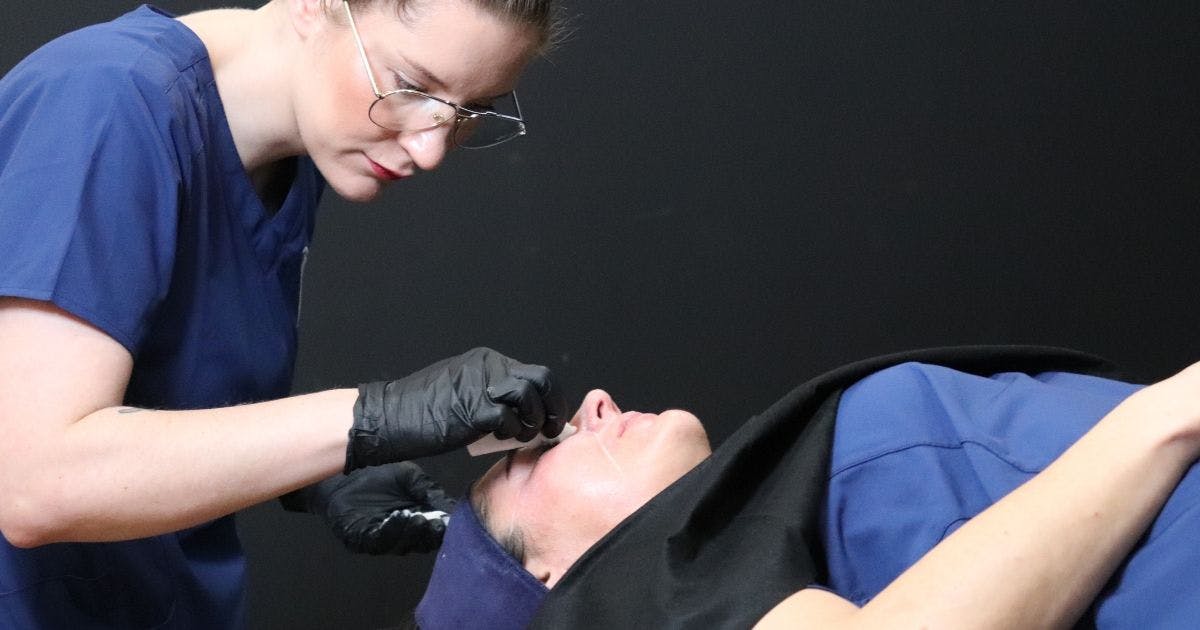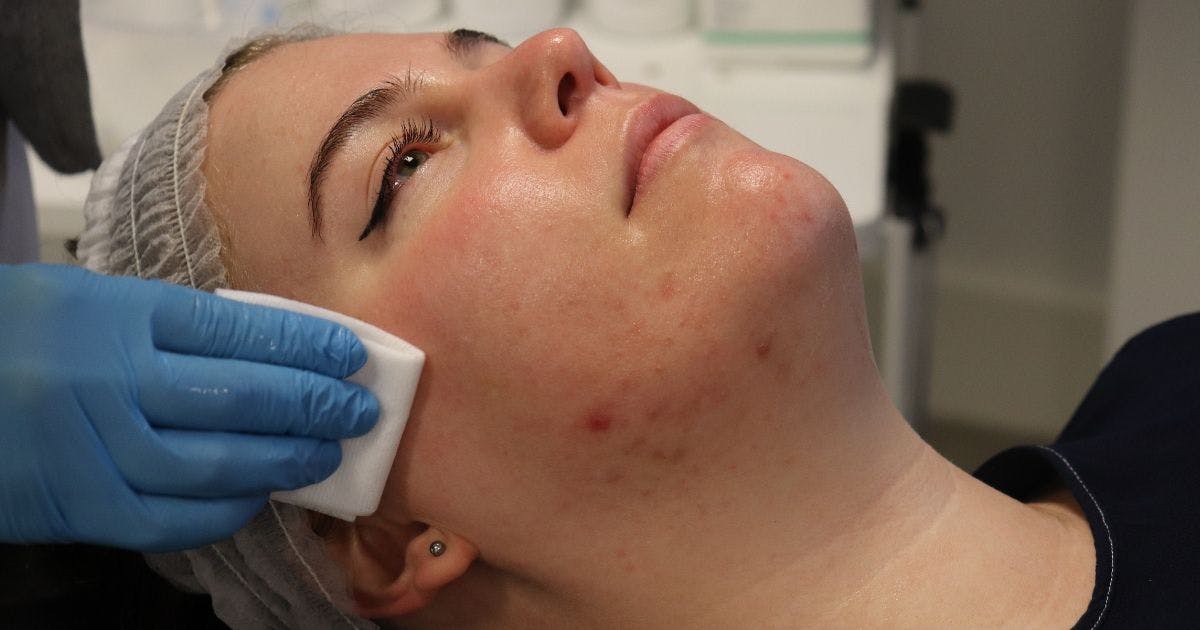Exploring Chemical Peel Training

One of the most popular elements of our Cosmetic Dermatology Course is chemical peel training.
Chemical peels offer injectors a wonderful entry level treatment option, which promotes the “skin first” approach. In particular, advanced peels provide suburb results which can set you apart from the rest, as a specialist.
Here we explore the different types of skin peels students learn about and examples of how they can form part of a holistic aesthetics treatment plan*.
*Though, as you’ll learn, chemical peels and injectables are not usually performed on the same day.

Popular types of chemical peels
Glycolic peels
- Superficial to medium depth chemical peels using glycolic acid
- Resurface the skin with minimal post-treatment peeling
- Provide a brighter, more evenly-toned complexion
- Best for sun damage and superficial pigmentation issues.
Salicylic acid peels
- Superficial peels using salicylic acid
- Exfoliate for brighter, clearer skin
- Provide anti-inflammatory benefits
- Best for acne, skin congestion and oily skin issues.

Retinol peels
- Medium-depth chemical peels using retinol, a topical form of vitamin A
- Deeply exfoliate for a smoother skin texture
- Improve pigmentation issues including sun damage
- Reduce the appearance of fine lines and aids skin laxity
- Best for acne, congested and oily skin, hyperpigmentation and/or patients seeking anti-ageing effects
- Particularly useful for high fitzpatrick skin types (darker skin tones).
TCA peels
- Medium-depth chemical peel using trichloroacetic acid (TCA)
- Strongest chemical peel offered in a non-surgical environment
- Targets the papillary dermis whereas superficial peels have a more intra-epidermal effect
- Not advised during summer months due to photosensitivity concerns
- Associated with higher downtime and peeling effect
- Layered peel which renews the epidermis providing a brighter, more uniform complexion
- Reduces sun damage, fine lines and skin laxity
- Increases collagen production
- Best for sun damage, skin ageing concerns, pigmentation issues and some scarring.

Chemical Peel training
If you find learning these treatments a-peel-ing (sorry!), we have fantastic cosmetic dermatology training open to licensed doctors, dentists, nurses, midwives and clinical pharmacists…
Cosmetic Dermatology Course
This in-depth course offers flexible learning and takes around 3-6 months to complete. It allows medical practitioners to focus on understanding and delivering safe and effective skin treatments. A range of different products and brands are covered for enhanced learning.
This Cosmetic Dermatology course also equips you with the knowlege you need to establish and run your own skin clinic. In short, it provides the theory and practical skills you need to become a safe and confident “skin first” practitioner who patients can trust.
What you'll learn on our Cosmetic Dermatology Course
You'll start with Foundation Training in Cosmetic Dermatology, which establishes the basics of skin assessment and consultations. In addition, you'll learn about skincare ingredients and develop your understanding to the point where you'll be able to confidently tailor skincare plans for patients.
The added benefit of this is knowing about formulation for when you're choosing products for your clinic. Having this understanding allows you to judge for yourself, rather than relying on sales and marketing information.
You'll equip yourself with the tools you can use throughout your career and build on this with further modules covering...
- Ethics, policy compliance and the law relating to facial rejuvenation treatments
- Principles of topical skin therapy and active skincare ingredients
- Chemical peels (superficial to medium depth)
- Microneedling
- Hyperpigmentation and skin of colour
- Injectable skin treatments including mesotherapy, skin boosters and polynucleotides
- Combining skin treatments to improve patients’ results.
Combined Level 7 Diploma
If you’re taking the leap from healthcare professional to aesthetic practitioner and want to stand out from the crowd, our Combined Level 7 Diploma course is for you.
This allows you to complete our industry-leading aesthetic medicine qualification, the Level 7 Diploma in Botox and Dermal Fillers, as well as our Cosmetic Dermatology Course as outlined above.
Provide a truly holistic approach to skin health, beautification and ageing by cultivating a broad portfolio of aesthetics knowledge and skills.
Use the anatomical information you learn as part of your Ofqual-regulated, Master's level Diploma in Botox and Dermal Fillers to further inform the skin therapy approaches taught in your Cosmetic Dermatology Course training.
Fully exploring each sector allows you to provide your patients with the best possible treatment plans. You can offer safe and effective bespoke combinations of injectables and skin treatments to achieve their goals.
This deep understanding can differentiate you as a highly-qualified and ethical all-round aesthetics specialist, inspiring trust in patients.
Please note, we do not offer chemical peel training in isolation.
All information correct at the time of publication
Download our full prospectus
Browse all our injectables, dermal fillers and cosmetic dermatology courses in one document
By submitting this form, you agree to receive marketing about our products, events, promotions and exclusive content. Consent is not a condition of purchase, and no purchase is necessary. Message frequency varies. View our Privacy Policy and Terms & Conditions
Attend our FREE open evening
If you're not sure which course is right for you, let us help
Join us online or in-person at our free open evening to learn more
Our Partners














STAY INFORMED
Sign up to receive industry news, careers advice, special offers and information on Harley Academy courses and services

